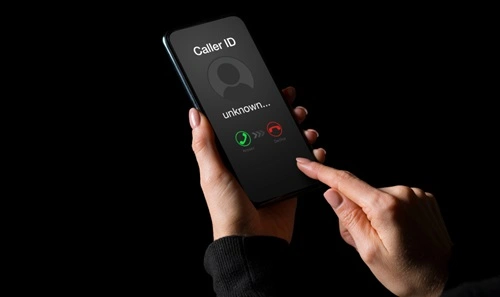No, it is not inherently illegal to give out someone’s phone number, but it can lead to legal consequences depending on the context and intent. Sharing someone’s personal information without their consent can violate privacy laws or open you up to civil liability if the action causes harm, harassment, or misuse.
Legal Considerations
1. No Specific Federal Law Prohibiting Sharing Phone Numbers
In the United States, there is no federal law explicitly prohibiting the act of sharing someone’s phone number. However, privacy laws and general legal principles may apply depending on the circumstances under which the number is shared and the consequences of the disclosure.
2. Privacy Laws and Personal Information
While a phone number is not classified as “protected” information under federal laws like the Health Insurance Portability and Accountability Act (HIPAA) or the Family Educational Rights and Privacy Act (FERPA), it can still fall under general privacy protections if:
- The information is shared in a way that violates someone’s reasonable expectation of privacy.
- The disclosure causes harm, harassment, or financial loss.
3. Harassment and Intentional Harm
If you give out someone’s phone number with malicious intent, such as encouraging harassment or stalking, you could face civil or criminal consequences. For example:
- Cyberstalking and Harassment Laws: Many states have laws prohibiting actions that lead to online or physical harassment. Sharing a phone number in this context could be part of an actionable claim.
- Intentional Infliction of Emotional Distress: If the action causes significant emotional or psychological harm, the victim could sue for damages under tort law.
4. Business and Consumer Protections
For businesses, sharing customer phone numbers without consent may violate state or federal consumer protection laws, such as:
- California Consumer Privacy Act (CCPA): Businesses operating in California must obtain consent before sharing or selling personal data, including phone numbers.
- Gramm-Leach-Bliley Act (GLBA): Financial institutions are required to protect customer information, which may include phone numbers.
Scenarios Where Sharing a Phone Number Can Lead to Legal Issues
1. Encouraging Harassment
If a person shares someone’s phone number with the intent to encourage others to harass or threaten them, it could lead to criminal charges, including harassment or cyberstalking.
2. Business Misuse of Customer Data
If a company shares or sells a customer’s phone number without consent, it may be subject to fines or lawsuits under privacy laws, particularly in states with strong consumer privacy protections like California, Virginia, and Colorado.
3. Doxxing
“Doxxing” refers to sharing someone’s personal information online, such as their phone number, home address, or workplace, often with malicious intent. Doxxing is illegal in many states and can lead to criminal charges or civil lawsuits.
4. Workplace Misconduct
If an employer or coworker shares an employee’s phone number without permission, it could violate workplace privacy policies or anti-harassment laws.
Recent Updates and Legal Trends
As of 2024, privacy advocates are calling for stronger federal protections for personal information, including phone numbers. Several states, including California, Virginia, and Colorado, have passed privacy laws requiring explicit consent before businesses share personal data.
Additionally, there has been an increase in lawsuits related to doxxing, with courts imposing significant penalties for individuals and organizations found guilty of sharing personal information that leads to harassment or harm.
Consequences of Sharing Someone’s Phone Number
Depending on the context, the legal and financial consequences of sharing someone’s phone number can include:
- Civil Lawsuits: The affected person may sue for invasion of privacy, harassment, or emotional distress.
- Criminal Charges: If the act involves intent to harm, harass, or stalk, criminal charges may apply under state or federal law.
- Fines for Businesses: Companies that share phone numbers without consent may face penalties under privacy regulations.
- Reputational Damage: Sharing someone’s personal information without consent can lead to public backlash, even if no laws are broken.
FAQs About Sharing Phone Numbers
Q1. Is it illegal to share someone’s phone number with mutual friends?
Ans: No, sharing a phone number with mutual friends is not illegal if there is no malicious intent, though it is courteous to seek permission first.
Q2. Can I be sued for giving out someone’s phone number?
Ans: Yes, you could be sued if sharing the phone number results in harassment, harm, or emotional distress.
Q3. Is it illegal for a business to share my phone number without permission?
Ans: In some states, like California, it is illegal for businesses to share or sell personal data, including phone numbers, without explicit consent.
Q4. What if I shared a phone number accidentally?
Ans: Unintentional sharing is unlikely to result in legal action unless it causes significant harm. However, you may still face civil liability in some cases.
Q5. Can law enforcement share my phone number?
Ans: Law enforcement may share your phone number as part of an investigation or official business, typically within the bounds of privacy laws.


